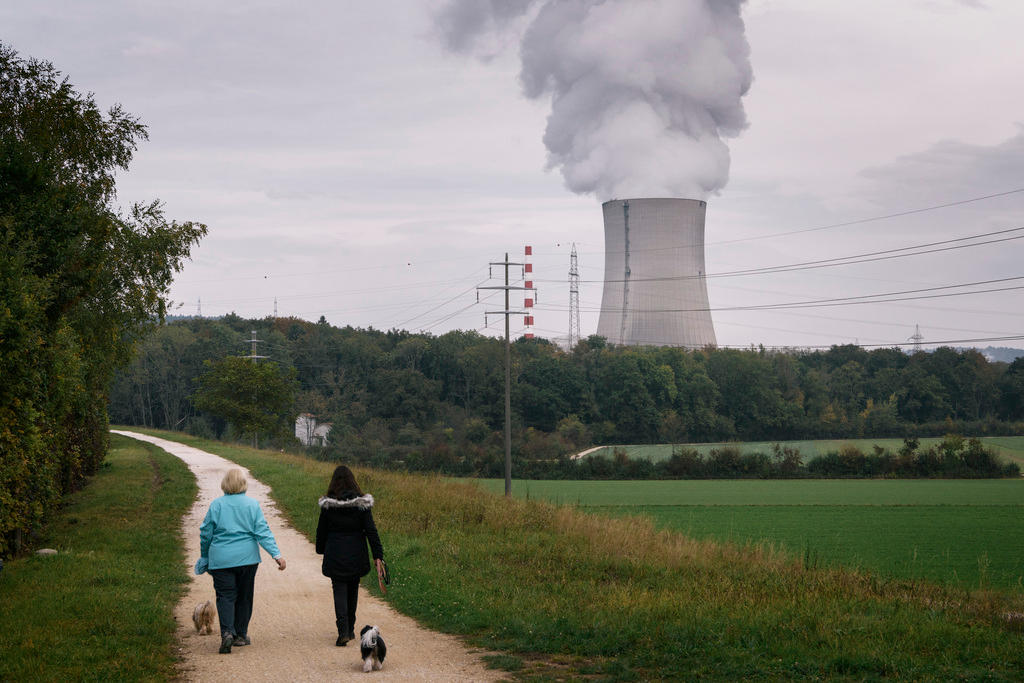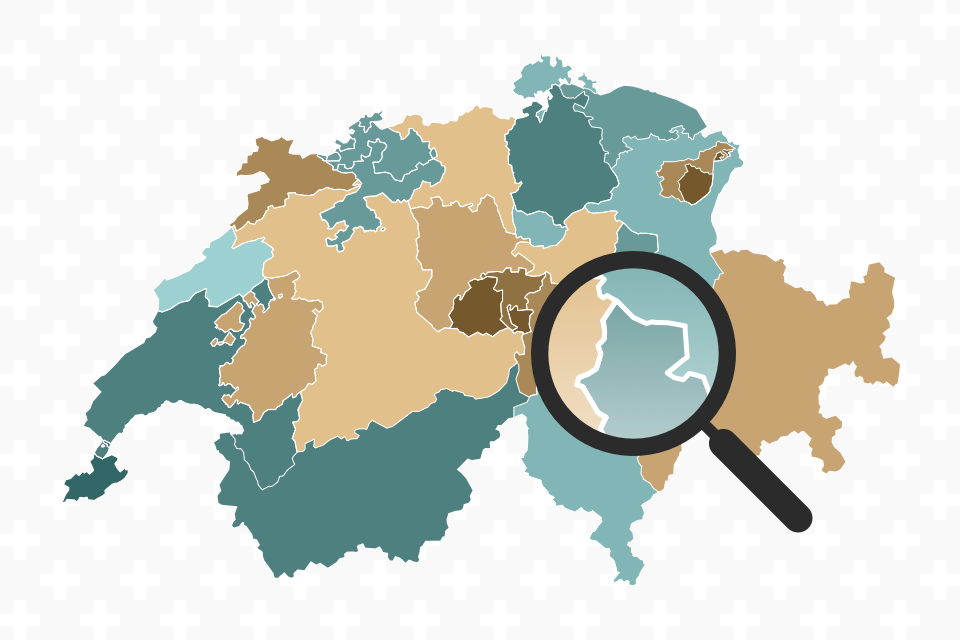
Swiss nuclear plants to remain on grid

Swiss voters have thrown out a proposal to close the country’s five nuclear power plants after 45 years in operation.
The Green Party initiative was rejected by 54.2% of the vote, according to final results.
Only six of the country’s 26 cantons, mainly in French-speaking Switzerland, came out in favour of the phase out.

More
Vote results: Nuclear power initiative
Despite the defeat, Regula Rytz, president of the Green Party, welcomed Sunday’s result.
“The high number of yes votes confirmed that citizens wanted to opt out of nuclear power in the long run,” she said.
The leftwing Social Democrats said the nuclear era was coming to an end, while the environmental organisation Greenpeace described the result as a “slap on the wrist” of the nuclear power industry.
Confidence
Energy Minister Doris Leuthard said the result was a vote of confidence in the government and its energy strategy. “Voters do not want a hasty shut down of nuclear power plants. A policy change is not feasible from one day to the next,” she told a news conference.
The association of electricity companies said the result was a decision based on “common sense”.
The Swiss Business Federation, economiesuisse, said voters wanted to ensure electricity supplies and avoid a dependence on imports.
Turnout in Sunday’s ballot was average, at 45%. More than 106,000 citizens, including registered Swiss Abroad, were able to vote online as part of a long-running trial with e-voting. Nearly 26% of them used this channel, according to the Federal Chancellery.
Safety
Supporters of the initiative argued the safety of old reactors, operating since the early 1970s, could no longer be guaranteed. Instead, they called for more energy efficiency and renewable energy resources.
“An orderly phase out creates more safety and protects our country,” according to the campaign slogan of the initiative committee.
If it had been approved, three plants would have had to close as early as next year and Switzerland would have phased out nuclear energy production by 2029. Most of the Swiss nuclear reactors have unlimited operating licences, which are subject to approval by the regulator.
The proposal was backed by an alliance of leftwing parties, trade unions and environmental organisations.
Switzerland has five nuclear power reactors, generating about 34.5% of its electricity. It uses nuclear energy to produce electricity, in research and medicine.
Worldwide there are 447 nuclear power plants in 31 countries, according to the International Atomic Energy Agency (IAEA). An experimental power reactor at Lucens was written off in 1969 following a core melt.
Two reactors, Beznau 1 and Leibstadt, are currently off grid due to repairs. The Mühleberg plant will be closed down in 2019 according to the power station operators.
Plans to build two power plants were abandoned in the 1980s following anti-nuclear protests.
Warning
Opponents, including the main centrist and rightwing parties in parliament as well as the business community, dismissed the proposal as risky and too hasty.
They said it created more uncertainty, danger and chaos for electricity supplies in Switzerland, and argued the country would have had to increase energy imports from abroad, notably from coal-fired power stations in Germany and nuclear reactors in France.
In the run-up to the November 27 vote, opponents warned that the proposed phase out could lead to blackouts and trigger considerable compensation claims from the operators of the power plants.
Energy Strategy
Following the nuclear disaster in Fukushima, the Swiss government in 2011 decided in principle to opt out of nuclear power production by 2034. In its energy policy, the government recommended decommissioning all nuclear reactors and to promote hydroelectric power, renewable energy and combined gas plants.
Last September, parliament approved an energy strategy, ending more than two years of debate. The programme foresees boosting renewable energy resources and outlaws the construction of nuclear power plants. However, it sets no deadline for the existing reactors to be shut down.
Unhappy with the Energy Strategy 2050, the rightwing Swiss People’s Party is challenging the law to a referendum, criticising planned government subsidies for renewable energy resources.

The Nov 27 was vote was the seventh nationwide ballot on nuclear power in Switzerland since 1979.
Ballots also took place at cantonal and local levels, notably on the storage of nuclear waste, public stock ownership in nuclear companies or a ban of nuclear power supplies for public utilities.

In compliance with the JTI standards
More: SWI swissinfo.ch certified by the Journalism Trust Initiative































You can find an overview of ongoing debates with our journalists here . Please join us!
If you want to start a conversation about a topic raised in this article or want to report factual errors, email us at english@swissinfo.ch.